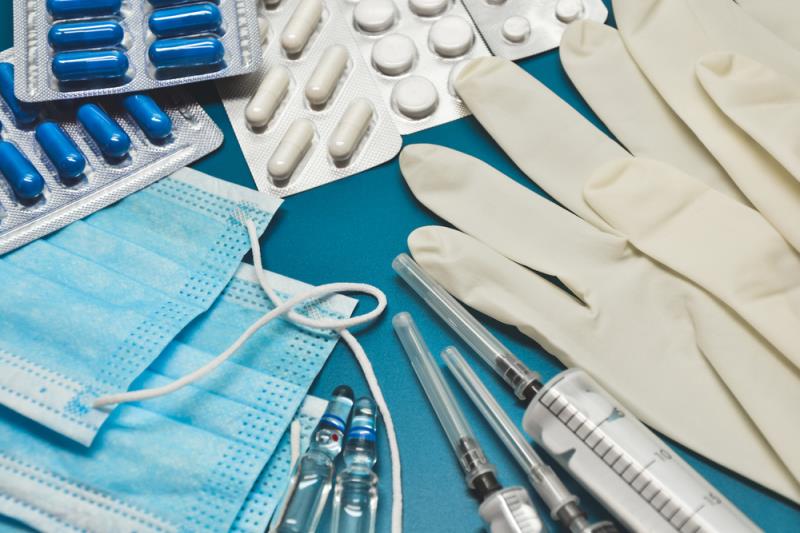Arbidol prevents COVID-19 infections in health professionals





Prophylactic oral arbidol appears to reduce infection with SARS-CoV-2, the causative agent of coronavirus disease 2019 (COVID-19), among frontline health professionals, suggests a study.
“[A]rbidol was associated with a lower incidence of SARS-CoV-2 infection but not hospitalization rate in health professionals, providing a basis for the selection of prophylactic drugs for high-risk populations,” including family members of COVID-19 patients and infectious disease control personnel,” the researchers said.
This study included frontline health professionals diagnosed with COVID-19 before 9 February 2020 in Tongji Hospital, Wuhan, China, as well as control participants in the uninfected group. The researchers obtained clinical and laboratory data with standardized forms.
Of the 164 participants (median age, 37 years; 101 females) enrolled in this study, 82 belonged to the infected group and 82 to the uninfected group. Arbidol was administered to 19 patients (23.2 percent) in the infected group and 48 (58.5 percent) in the uninfected group (odds ratio [OR], 0.214, 95 percent confidence interval [CI], 0.109–0.420). [Public Health Front 2020;doi:10.3389/fpubh.2020.00249]
The cumulative uninfected rate of health professionals was significantly higher in the arbidol than in the nonarbidol group (log-ran test, χ2 = 98.74; p<0.001).
More than half of the patients (n=48; 58.5 percent; median age, 39 years) in the infected group were hospitalized, seven (14.6 percent) of whom were given oral arbidol. Thirty-four patients (41.5 percent; median age, 34 years) with mild symptoms received treatment outside the hospital, 12 (35.3 percent) of whom were prophylactically administered arbidol.
Age (p=0.024) and oral arbidol administration (OR, 0.313, 95 percent CI, 0.108–0.909) were significantly associated with hospitalization rate. In the age-matched case-control study, however, the hospitalization rate did not correlate with arbidol administration (p=0.091).
“It is worth noting that this study found preventative oral arbidol was not significantly associated with the hospitalization rate and duration of positive throat swab of health professionals with COVID-19,” the researchers said. “Moreover, no statistical correlation between prophylactic medication and severe pneumonia, which was worth further consideration.”
This was potentially explained by arbidol’s effectiveness in preventing the virus from entering host cells and blocking the initial stages of the virus’s pathogenic process, which resulted in preventive protection. However, this protective effect was limited when several viruses replicate in host cells. [Curr Med Chem 2008;15:997-1005; Antiviral Res 2014;107:84-94]
“It should be noted that preventative oral arbidol was more common among nonhospitalized patients (35 percent vs 15 percent), although this difference was not significant after matching with age (p=0.091),” the researchers said, adding that further research is needed to establish the role and mechanism of arbidol in SARS-CoV-2 infections.
A broad-spectrum antiviral drug, arbidol blocks the contact, adhesion, and fusion of viral lipid capsules and host cell membranes and prevents replication of the virus. In addition, earlier trials found inhibitory effects of arbidol on several respiratory viruses, including enveloped and unenveloped viruses as well as RNA and DNA viruses. [Vopr Virusol 2008;53:9-13; Curr Med Chem 2008;15:997-1005; Antiviral Res 2014;107:84-94]